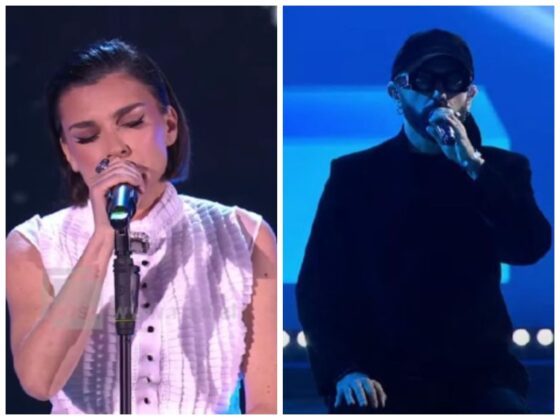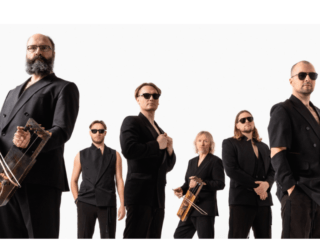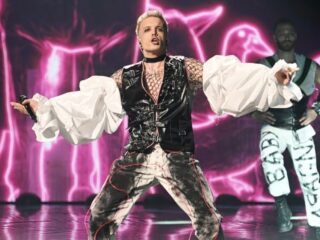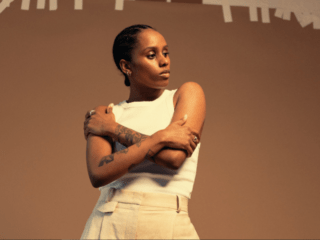It’s been twenty years since Ukraine joined the Eurovision Song Contest. Today they’re known as one of the most successful countries at Eurovision with three wins and a 100% qualification record.
But two decades ago it was a different story. In this episode we chart their course into the contest (with Oleksandr Ponomariov’s “Hasta la Vista”) and onto their first win (with Ruslana’s “Wild Dances”) just a year later. Their trajectory wasn’t straightforward, nor was it simple.
Ukraine at Eurovision: From Hasta la Vista to Wild Dances: What Really Happened at Eurovision (Episode 3)
Even getting the green light to participate was a challenge. Back in 2003, Ukraine’s broadcaster owed a massive debt to the European Broadcasting Union (EBU), which prevented it from joining Eurovision. And it also lacked English-speaking staff who could fully engage with the project and international media.
A team of young Ukrainians — inexperienced, but very enthusiastic — decided to take on the challenge of getting Ukraine to Eurovision and on to the top of the scoreboard.
“Our main motivation was all about obtaining the rights to host the Eurovision Song Contest because we firmly believed that this would help Ukraine publicise itself,” Vasyl Myroshnychenko told Wiwibloggs. He was one of those young, inexperienced team members. Today he’s Ukraine’s ambassador to Australia.
For their debut, Ukraine enlisted international help to curate their performance. For the song they called on Philip Vella, the Maltese composer behind the 2002 runner up “Seventh Wonder”.
“I knew they were going to succeed in the end because they were all obsessed with what they were doing,” he told us.
But the song Philip wrote for Ukraine’s entrant, Oleksandr Ponomariov, ended up on the cutting room floor at the 11th hour. Instead they went with “Hasta La Vista”, which ended up placing 16th out of 26 countries competing that year.
Their debut fell a bit flat. That perceived failure only fuelled Ukraine’s determination. Fast-forward to 2004 and the narrative shifts to Ruslana, who embarks on a strategic, continent-wide tour to drum up support in smaller countries. When the odds aren’t going in her favour, Ruslana’s team get to work in Riga. Ultimately her game-changing performance of “Wild Dances” — which showcases Ukrainian culture on a massive stage — quenches the nation’s thirst for attention on the global stage.
In this episode, we delve into the story of how Ukraine, a nation in flux between east and west, became the powerhouse in the contest we know and admire today. We hear the song they almost sent for their debut and discuss how the country’s admission to the contest mirrored continent-wide shifts in integration.
You can listen on YouTube or wherever else you get your Wiwibloggs podcast.











Ukraine is probably my favorite country in ESC. Consistently iconic.
I voted for „Wild Dances“ as a kid. And for „Everyway that I can“ the year before. And „My number one“ the year after. These days, I can’t even remember what it feels like to vote for a Eurovision winner. And not only because I stopped voting. lol say what you will, those were damn good agreeable winning songs three years in a row. There was no dark age.
Indeed! 100% agreed.
Will every participating country get it’s own article/episode or this is only about Ukraine? If the latter, what’s the point of this special treatment? It got tired…
This is the third episode of a podcast series that hasn’t been updated in a while. The first two episodes dealt with Bosnia and Herzegovina’s debut at the time of Yugoslav wars in the 90s and Dana International’s groundbreaking victory LGBT community, respectively.
Oh, ok thsnk you, that makes more sense… well, at least B&H didn’t get that pity win like someoneelse…
I would even say they were terribly underrated. In fact, all 3 debuting ex Yugoslav countries were terribly underrated.
Wow, the hate for no reason.